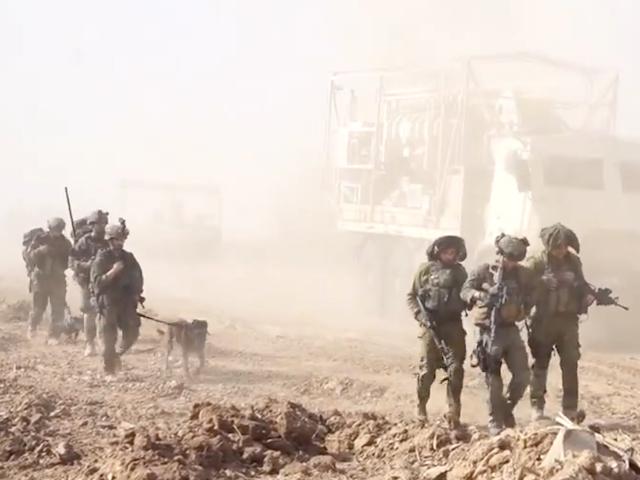In the face of significant losses, the Israel Defense Forces (IDF) have demonstrated unwavering resilience and readiness to confront threats across all fronts. In a must-read interview with the Jerusalem Post, Brigadier General Eran Oliel, the commander of the IDF's Infantry and Paratroopers Corps, emphasized the robust capability of his forces to fulfill their missions without hindrance, despite the loss of over 500 soldiers. This assertion underscores the IDF's adaptability and the effectiveness of its strategic responses to personnel challenges.
Under Brigadier General Oliel's leadership, the infantry—the largest command within the IDF—has not only continued to engage in combat operations, notably on October 7, but has also embarked on numerous initiatives to bolster its ranks and maintain its operational readiness. These initiatives include an increase in the ratio of draftees for the November 2023 group, retention of career officers at higher rates than usual, and an emphasis on expanding the combat fighter and commander categories within the force. Such measures reflect a significant commitment to ensuring the IDF's ground forces remain formidable and capable of handling any assigned tasks.
The motivation among soldiers and officers to serve has been notably high, a vital factor that Brigadier General Oliel credits for the IDF's enduring strength. This spirit of dedication is instrumental in enabling the IDF to continue its operations in challenging environments such as Khan Yunis and Shati, where IDF forces have demonstrated their capacity to manage all assigned operations effectively.
This is the warcry of the "Orev" battalion of the Givati Brigade.
— Documenting Israel (@DocumentIsrael) February 6, 2024
Orev soldiers are trained both as regular Infantry, and in anti-tank warfare. pic.twitter.com/nzGCkeDKYA
The JPost's interview further explores the specific challenges faced by the Paratrooper Brigade, a unit within Brigadier General Oliel's command that has endured unusual losses. The paratroopers' specialized training and unique capabilities make their replacement more complex than that of regular infantry. Nevertheless, through strategic planning, including the retention of experienced personnel, the creation of additional career officer positions, and the utilization of reservists, the IDF has managed to maintain the operational strength of this elite unit.
Brigadier General Oliel's hands-on leadership approach, illustrated by his regular presence in combat zones alongside units such as the Rotem Battalion of the Givati Brigade and the Sayeret Nahal 931 Unit, provides him with direct insight into the frontline realities. His experiences have informed a broad perspective on the IDF's strategic positioning and readiness across various fronts, from the complexities of the northern border defenses to the operational control over areas in Gaza.
IDF infantry chief to 'Post': Israel can handle a multi-front war https://t.co/ExcDku9zwM
— Frank Vink (@FrankVink) February 9, 2024
The IDF's strategic evolution in response to current and emerging threats is evident in Brigadier General Oliel's discussion of the forces deployed across Israel's borders and within its territories. The adjustments in the IDF's ground forces, whether in response to the situation in Gaza, the West Bank, or along the borders with Egypt and Jordan, reflect a comprehensive approach to national security. This approach balances the need for robust defensive measures with the operational flexibility to adapt to changing threat landscapes.
In conclusion, Brigadier General Eran Oliel's insights reveal an IDF that is both reflective and proactive in its strategy and operations. Despite facing significant challenges, including the loss of personnel and the complexities of modern warfare, the IDF remains committed to its mission of defending Israel. Through strategic planning, innovative recruitment, and retention initiatives, and a deep-seated commitment to operational excellence, the IDF continues to stand as a testament to Israel's resilience and determination to ensure its security and sovereignty.


